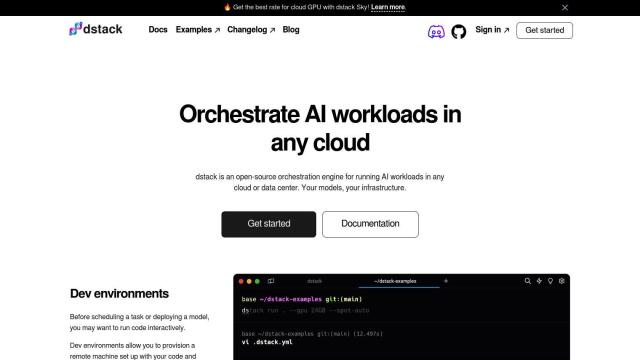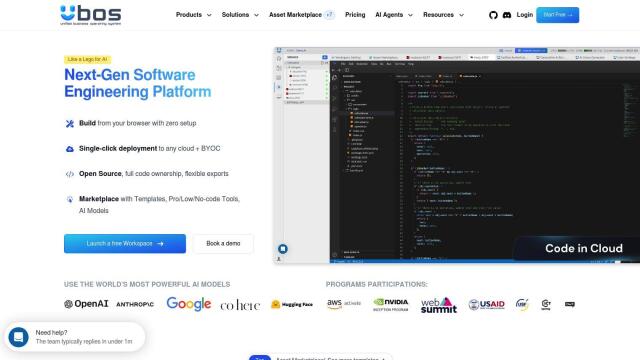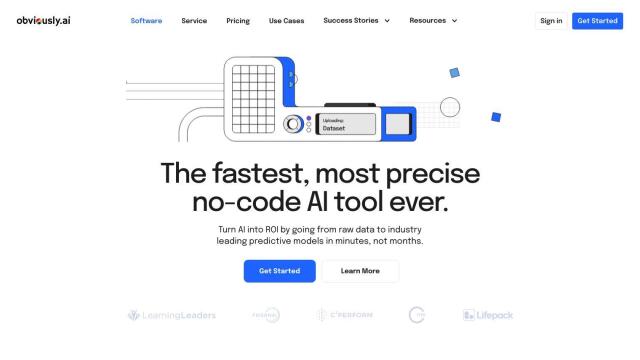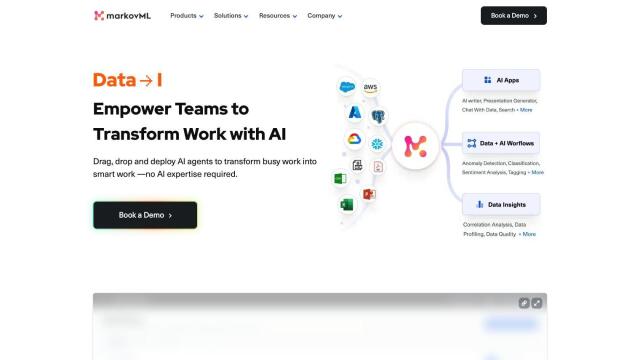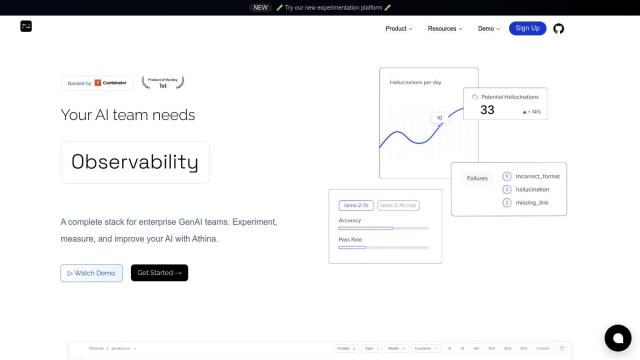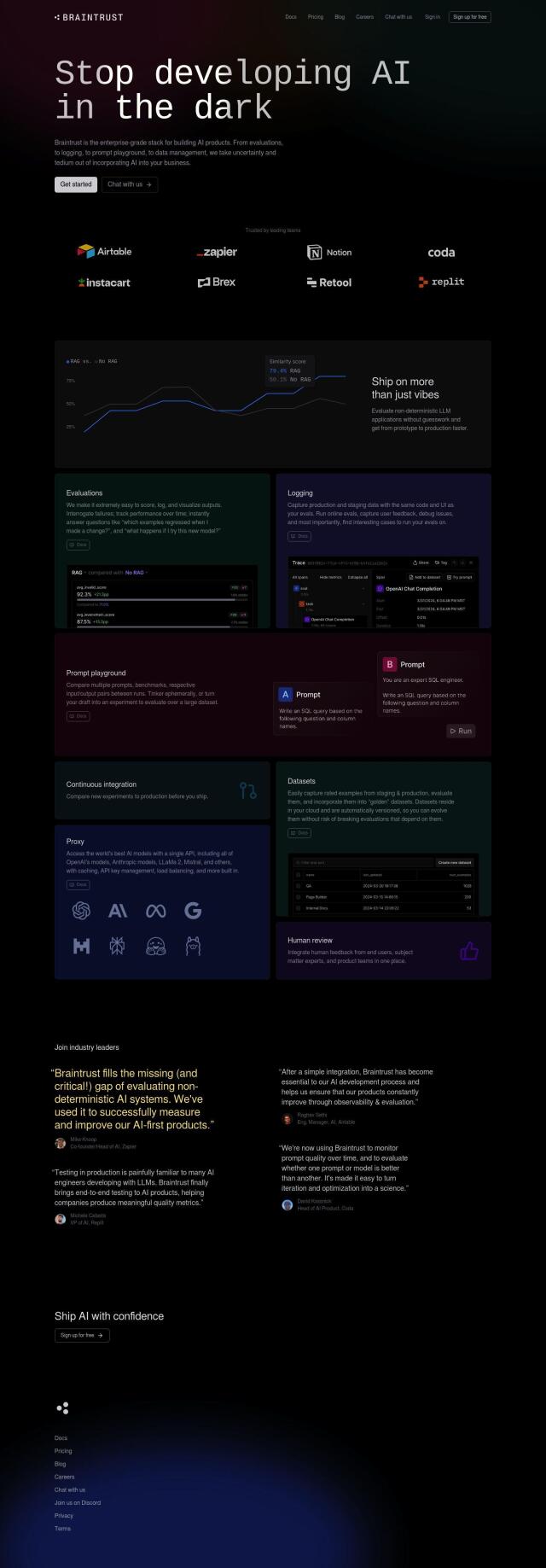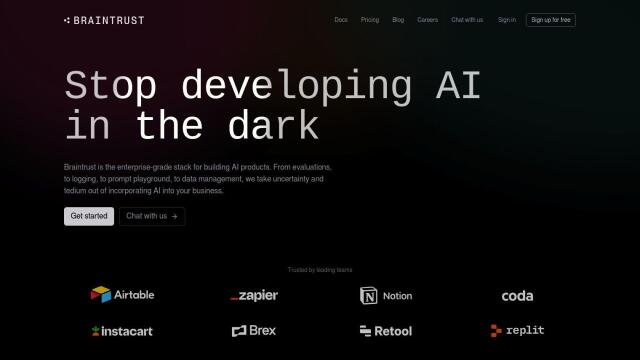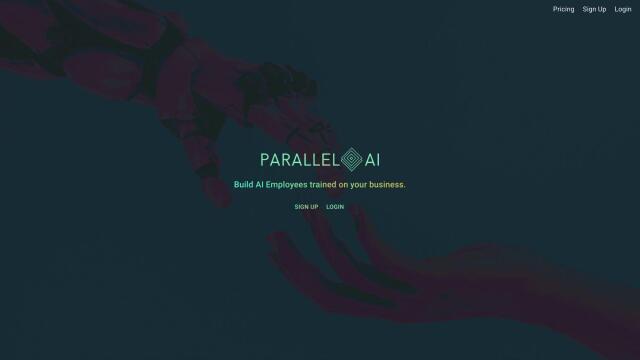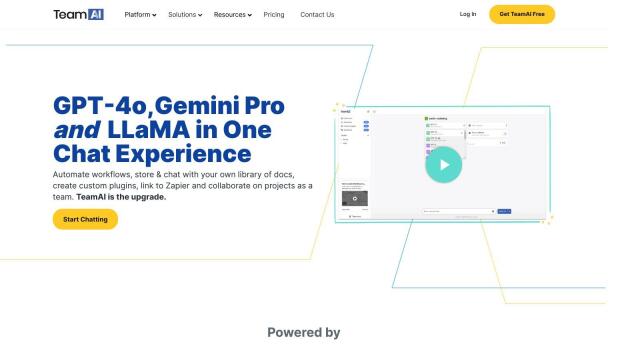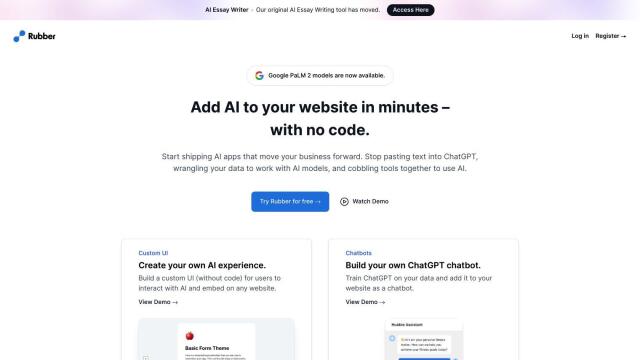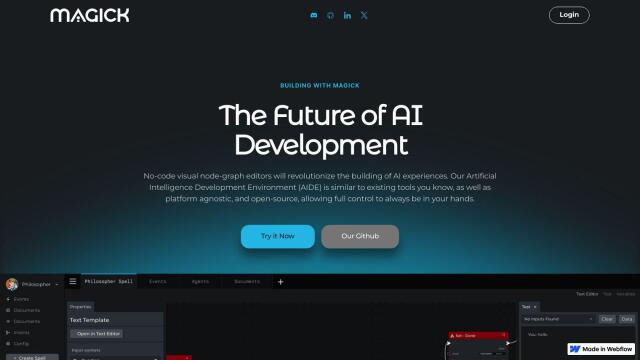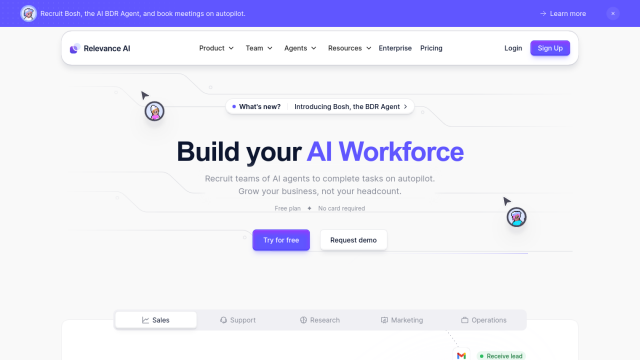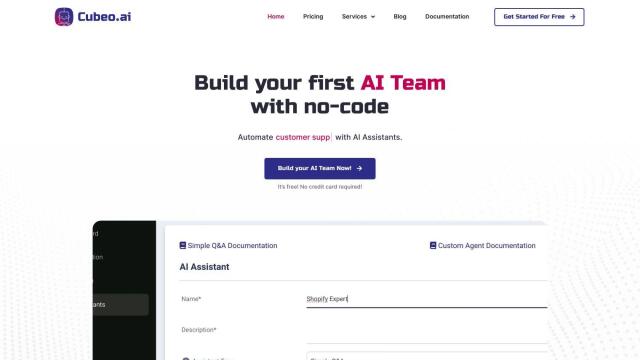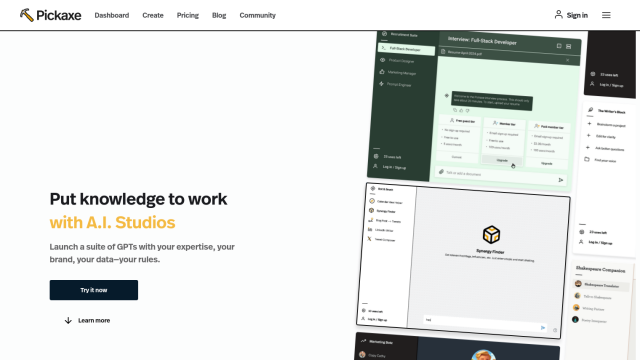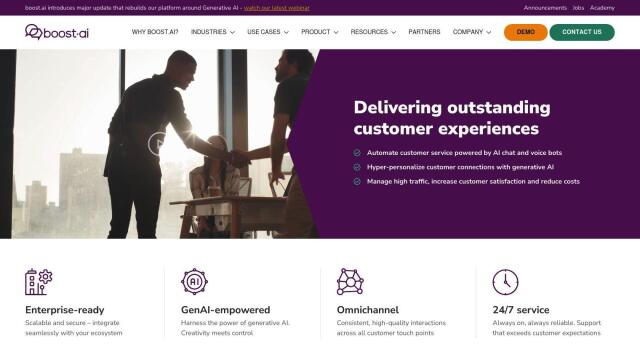Question: Can you recommend a platform that enables easy integration of different tech stacks with AI applications, without requiring extensive technical expertise?

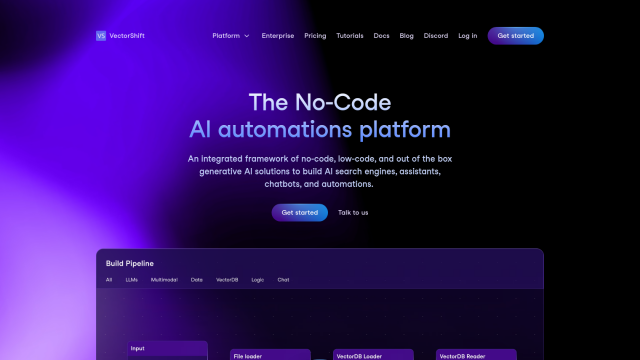
VectorShift
If you're looking for a platform that makes it easy to integrate different tech stacks with AI applications without requiring a lot of technical expertise, VectorShift could be a good option. This end-to-end AI automation platform provides a single framework for building AI-powered applications like search engines, assistants, chatbots and automations. It has a no-code interface with drag-and-drop components, a code SDK for API access, and a marketplace with more than 60 pre-built pipelines for automating workflows. VectorShift can integrate with a range of tools, including Google Drive, Salesforce, Hubspot and Notion, and can use the latest large language models from top providers like OpenAI and Huggingface.

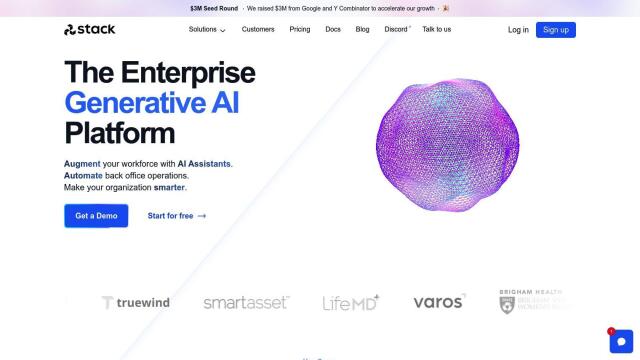
Stack AI
Another option is Stack AI, an AI integration platform that's designed to increase productivity by connecting AI with a wide range of data sources. It has a user-friendly interface with drag-and-drop tools and pre-built templates that make it easy to build AI applications with minimal coding. Stack AI supports no coding required, enterprise-grade security and on-premise deployment options. It's good for automating back office work and using AI assistants to augment your workforce, with use cases ranging from speeding up RFP responses to clinical support and student learning.

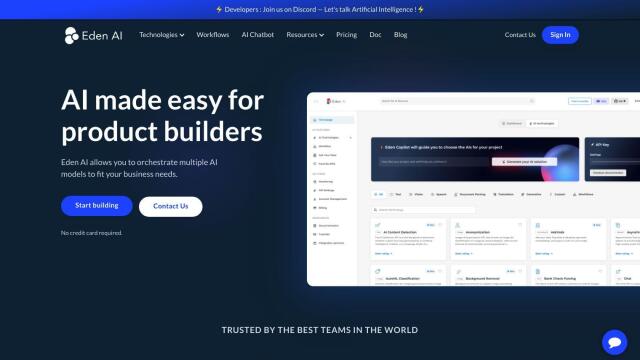
Eden AI
For those who want to orchestrate multiple AI models into business processes, Eden AI provides a single interface to a range of AI services without the complexity of juggling multiple APIs. That includes generative AI, translation, text analysis, image and video content analysis, and more. Eden AI's unified API lets you switch among providers without being locked in, which can help businesses save money without sacrificing performance. The company's goal is to democratize AI adoption, making it available to all companies, regardless of size, and automating operations to reduce costs.

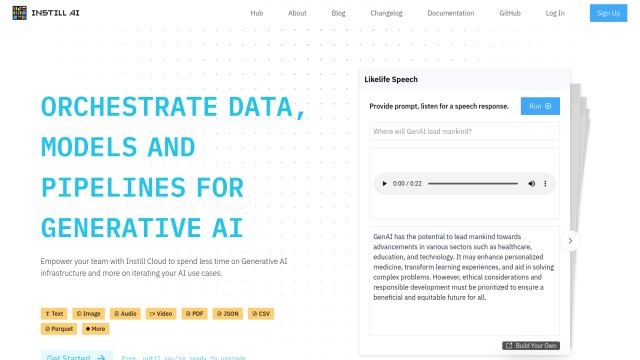
Instill
Last, Instill offers a no-code/low-code AI platform that abstracts away data, models and pipelines for generative AI. It includes speech responses, webpage summarization, visual assistance and more. Instill's drag-and-drop interface and open-source components let teams focus on iterating AI use cases instead of infrastructure. With SDKs for Python and TypeScript, it supports a collaborative environment and offers tiered pricing options to accommodate different needs, making it a flexible and scalable option for a wide range of AI use cases.







